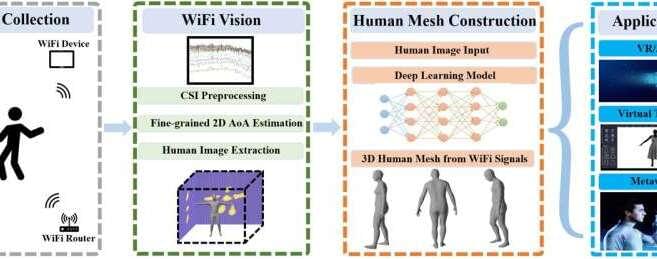A 3D mesh is a three-dimensional object representation made of different vertices and polygons. These representations can be very useful for numerous technological applications, including computer vision, virtual reality (VR) and augmented reality (AR) systems.
Researchers at Florida State University and Rutgers University have recently developed Wi-Mesh, a system that can create reliable 3D human meshes, representations of humans that can then be used by different computational models and applications. Their system was presented at the Twentieth ACM Conference on Embedded Networked Sensor Systems (ACM SenSys ‘22), a conference focusing on computer science research.
“Our research group specializes in cutting-edge wi-fi sensing research,” Professor Jie Yang at Florida State University, one of the researchers who carried out the study, told Tech Xplore. “In previous work, we have developed systems that use wi-fi devices to sense a range of human activities and objects, including large-scale human body movements, small-scale finger movements, sleep monitoring, and daily objects. Our E-eyes and WiFinger systems were among the first to use wi-fi sensing to classify various types of daily activities and finger gestures, with a focus on predefined activities using a trained model.”
